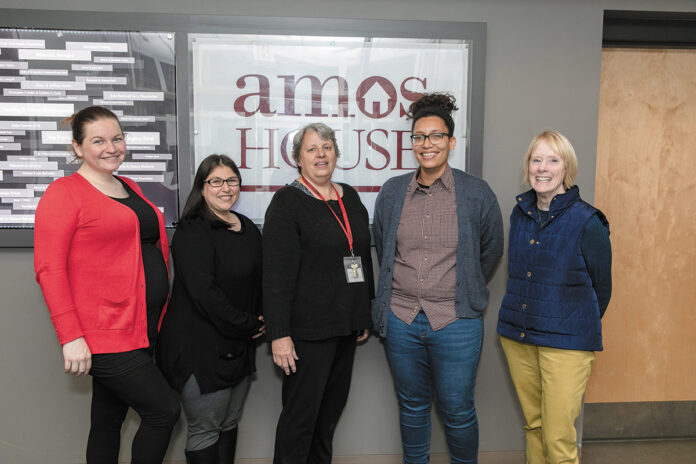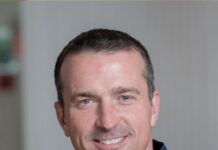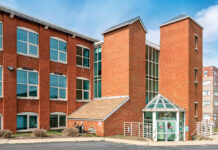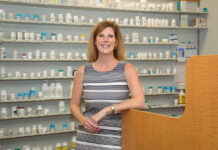
PBN Diversity & Inclusion Awards 2019
NONPROFIT/SOCIAL-SERVICE AGENCY: Amos House
THE YEAR WAS 2016. Three high-profile police shootings with racial overtones in as many days gripped the nation’s collective conscience.
Although no such shooting occurred in Rhode Island, conversations about race and racism percolated in many corners of Providence, including at Amos House.
Instead of dividing people at the 460 Pine St. campus, that dialogue propelled everyone who was touched by the incidents to greater unity through diversity.
“We looked at ourselves as an organization and asked questions about how diverse we are,” Amos House CEO and President Eileen Hayes said. “We wanted to make sure when we are interacting with staff, clients and the community, we are doing it with sensitivity and awareness so we can be as inclusive and responsive as we can be.”
Founded in 1976 as a small soup kitchen, Amos House has become one of Rhode Island’s largest social-service agencies and the state’s largest soup kitchen – serving about 140,000 meals annually.
With an increased menu of programs, the agency serves more than the hungry. The homeless, unemployed and former prison inmates also benefit, as Amos House fulfills its mission to help people help themselves out of homelessness and poverty.
“Volunteered here for work. … was so wow-ed [sic] by the folks who run this operation,” posted Nanda Carvalhal in a Google review. “[They] are all so friendly and non-judgmental of the people who go there off the street to eat.”
The campus boasts several buildings, including permanent supportive housing and a mother-child reunification center. It also has a 3-year-old, 29,000-square-foot, light-filled community center complete with dining hall, social-service offices, and training classrooms for culinary, carpentry and maintenance education.
‘We wanted to make sure when we are interacting with staff, clients and the community, we are doing it with sensitivity and awareness.’
Eileen Hayes, Amos House CEO and president
Amos House employs many who were once clients – an average of 15 of them at its two businesses, More than a Meal Catering and Amos House Builds. Another 25 employees work in other organization-supported programs.
The agency is embracing and encouraging diversity from the top down to benefit the more than 15,000 clients served annually:
• An expanded board includes two new minority members, one homosexual.
• Half of the management team members are racially diverse women.
• The 80-member staff includes 40 employees of color, five who speak Spanish and many from diverse religious affiliations and sexual preferences.
• Four of six people trained at off-site leadership conferences are nonwhite.
• Minority subcontractors helping build the community center made up 33% of the total workforce.
But the formation of Amos House’s Diversity and Inclusion Committee may best exemplify the agency’s commitment to diversity.
Headed by Kalimara Otto-Gentry and Michelle Pugh, the committee meets at least monthly to help shape training in best practices to create inclusive environments.
Recently, Hayes taught how to work with people who endured various traumas, and how to do so sensibly and with sensitivity. Other training has addressed race and racism, working with people with disabilities, and understanding nuances in different cultures and religions.
“Our staff identified areas where they felt they needed support and tools to better help the folks we work with,” said Otto-Gentry, A Hand Up Program director. “And, the staff wanted a safe space to work through and talk about these sorts of issues.”
That safe space has come in less-formal monthly “Community Conversations.”
These grassroots discussions are geared toward the organization’s internal community and welcome anyone interested in the topic du jour, one that may not normally be discussed during normal training.
“This has been an interesting way to get into the things we do that aren’t as apparent or the beliefs we hold that aren’t as on the surface and have people think about them,” said Pugh, director of workforce education.
Next year, the agency plans to engage the broader community in discussing how race and racism have impacted members.
“The last couple years we have been responding to the wider world and what’s going on there,” Hayes said. “We still have some ways to go, but I think our willingness to be open about the areas we need to improve on is the first step.”












